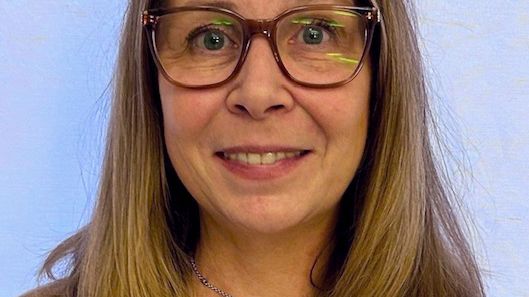Press release -
Important to involve both parents in breastfeeding
The most important support person for women to succeed in their ambition to breastfeed is the new mother’s partner. The partner also needs to be included through more support from healthcare professionals.
Peer-review/Experimental study/People
Together with Region Sörmland, Uppsala University has implemented a breastfeeding support programme. It provides new parents with structured breastfeeding support throughout the healthcare chain. The study is presented in an article published in the International Breastfeeding Journal. Interviews were conducted to investigate how the partner perceived the support in both the breastfeeding support group and in a control group that had received standard support.
“It is important for healthcare staff to offer structured support so that it reaches all parents, which means working with the whole family and having a reflective dialogue about how breastfeeding works. That dialogue has revealed that partners are keen to feed the child. It's important to involve the partner, to explain how they can be involved without feeding the baby,” explains Ingrid Blixt, Doctor of Medical Sciences and Coordination Midwife for Region Sörmland.
Previous research has shown that breastfeeding has a significant impact on the health of women and children, for example by protecting the baby from infections during the breastfeeding period and reducing the risk of ovarian and breast cancer for the mother. Previous studies have shown that nearly all women say they want to breastfeed their child. Only 10 percent of children in Sweden are fully breastfed for six months.
In the breastfeeding support group, partners felt more involved in breastfeeding and described how they collaborated with the mother to make breastfeeding work. The control group partners, on the other hand, felt excluded when they were not allowed to feed the baby and they felt that they were not supported by the healthcare staff. The only current guideline in healthcare is to provide parents with a leaflet on breastfeeding. Then it is up to each staff member as to what they do and don’t do.
The conclusion is that both parents need to be involved in breastfeeding support and staff need to support the partner in an inclusive way that does not entail the partner feeding the baby with a bottle. For single mothers, alternative solutions must be found.
“Single people are a vulnerable group and need other types of support. You may have a mum or someone close to you who can support you. Healthcare professionals can provide some support,” continues Blixt.
The support has been introduced in several areas of Region Sörmland and will eventually be implemented throughout the region. It will also be introduced in Region Uppsala.
“What’s special about this is that everyone gets this support as part of standard healthcare. It is offered to both first-time and repeat mothers,” notes Blixt.
Blixt, I., Axelsson, O. & Funkquist, EL. Partners’ experiences of breastfeeding: a qualitative evaluation of a breastfeeding support intervention in Sweden. Int Breastfeed J 19, 6 (2024). https://doi.org/10.1186/s13006-023-00609-6
Further information:
Ingrid Blixt, Doctor of Medical Sciences at Uppsala University and Coordination Midwife for Region Sörmland
+46 73-078 11 60
ingrid.blixt@kbh.uu.se
Eva-Lotta Funkquist, Docent and Senior Lecturer at the Department of Women's and Children's Health at Uppsala University, and Midwife and Paediatric Nurse
+46 73-030 62 01
eva-lotta.funkquist@kbh.uu.se
Topics
Categories
Founded in 1477, Uppsala University is the oldest university in Sweden. With more than 50,000 students and 7,500 employees in Uppsala and Visby, we are a broad university with research in social sciences, humanities, technology, natural sciences, medicine and pharmacology. Our mission is to conduct education and research of the highest quality and relevance to society on a long-term basis. Uppsala University is regularly ranked among the world’s top universities. www.uu.se

